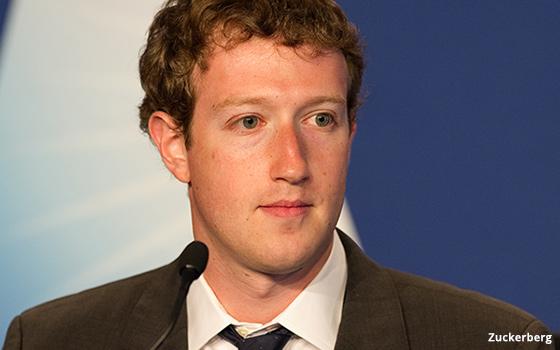
Mark Zuckerberg now
says he was “too flippant” in rejecting the notion that “fake news” could have influenced the 2016 U.S. presidential election.
“At this point, I clearly
made a mistake by just dismissing fake news as ‘crazy’ … as having an impact,” Facebook’s CEO said during a conference call with reporters on Wednesday.
The call
continued a long walk of shame for Zuckerberg, which he reluctantly began in the wake of the Cambridge Analytica screwup.
Echoing earlier remarks, the
embattled CEO again admitted that Facebook “didn’t do enough” to protect its enormous community from data vultures, purveyors of fake news and other bad actors.
“We
didn’t focus enough on preventing abuse and thinking through how people could use these tools to do harm,” he said. “That goes for fake news, foreign interference in elections, hate
speech, in addition to developers and data privacy.”
Added Zuckerberg: “We didn’t take a broad enough view of what our responsibility is — and that was a huge
mistake.”
Zuckerberg’s call came just hours after Facebook conceded that the information of up to 87 million members may have been "improverly shared"
with Cambridge Analytica.
Within that population, the company estimates the information of nearly 71 million U.S. users may have been shared with the controversial analytics firm.
Regarding those massive
figures, Zuckerberg pointed out: “It very well could be less, but we wanted to put out the maximum that we felt it could be.”
On the press call, Zuckerberg continued to face
questions about why Facebook has routinely failed to inform users when the company learns their privacy has been comprised.
For example, asked why Facebook didn’t tell users when it
first learned their public profiles may have been “scraped” using the platform’s account recovery features, Zuckerberg said his team only recently became aware of the full breadth of
the issue.
“We looked into this and understood it more over the last few days as part of the audit of our overall system,” he said. Asked whether he is still the best person to run
Facebook, Zuckerberg said he is.
In fact, the young mogul argued he’s actually in a better position to lead Facebook following its latest controversy.
“Life is about
learning from mistakes and figuring out what you need to do to move forward,” he said. “I don’t think anyone is going to be perfect, but what people should hold us accountable for is
learning from the mistakes and continually doing better.”
On the issue of ad targeting, Zuckerberg insisted that, for most Facebook users, the “relevant experiences” that
targeting affords outweighs any subsequent “discomfort” they may feel about the process.
“People tell us that if they’re going to see ads, they want the ads to be
good,” he said. “The feedback is overwhelming on the side of wanting a better experience … maybe it’s 95-5 or something like that.”
The call on
Wednesday may foreshadow some of the positions that Zuckerberg presents when he testifies before Congress next week.